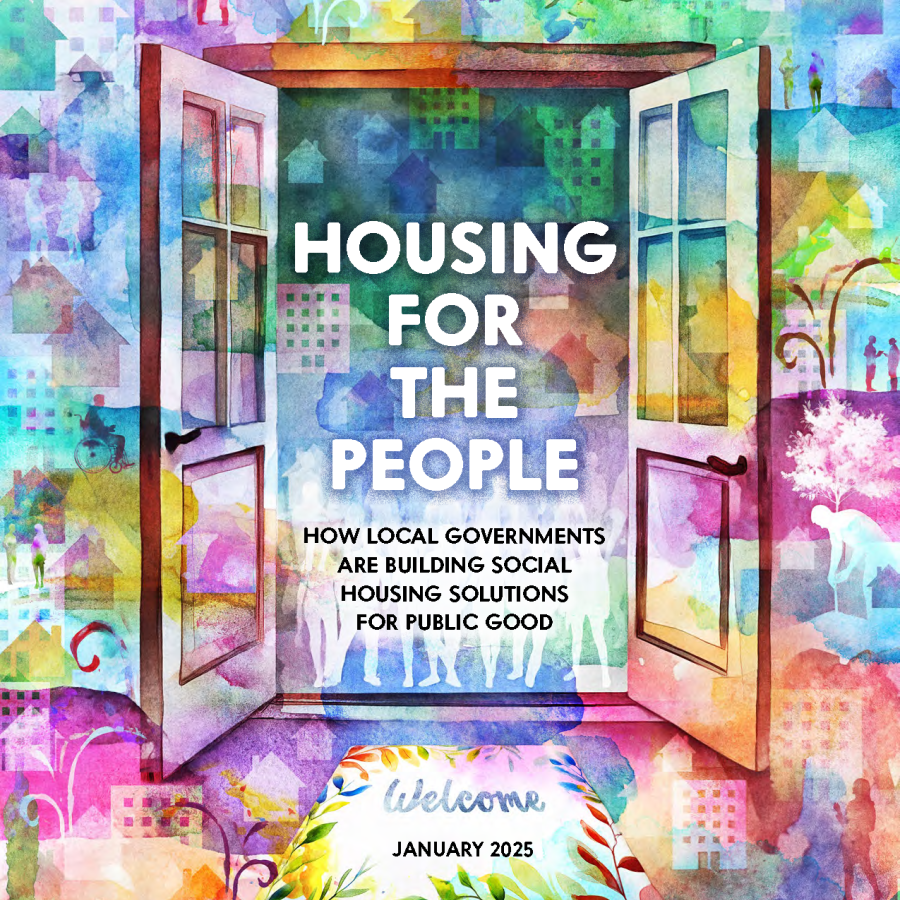Housing Futures & Land Justice
Imagine a future where all people in the United States have safe, stable, healthy homes and thrive in resource rich-communities.
Imagine a future where everyone always has a home to return to and remain — a place that serves as a foundation for their health and well-being. Imagine if all people had housing where they can have a secure and positive relationship with their communities and the land they live on. Everyone would have a place where they can dream and pursue the futures they choose for themselves. These are the housing futures that currently exist for some, and that we can realize for all.
Today, the 100 million people living below 200 percent of the poverty level are left with little space and time to dream about and plan for their futures. Many Black, Brown, and Indigenous people are confronted with threats of displacement from their homes, and often occupied with planning how to survive the next day, week, or month.
At PolicyLink, we know it is within our collective power to deliver a new reality for everyone. Decisions, policies, and investments rooted in exclusion and discrimination have created our current reality. We can collectively make new decisions that create a future where all people in America have stable, healthy homes and live in thriving communities.
Every day, communities most impacted by housing inequities are advancing solutions that can shift power, land, and housing to people who have been historically displaced, disenfranchised, extracted from, or otherwise locked out of housing opportunities. PolicyLink works in partnership with frontline organizing groups and national organizations to advocate for equitable housing policies at local, state, and federal levels:
- We work to harness our collective power to collaborate, innovate, and address housing challenges. We develop Housing Futures resources that help each of us consider how we can contribute to designing and implementing housing models that allow everyone the stability and ability to dream about and pursue bold futures. We also generate learnings and tools to advance a housing justice narrative that can support this future.
- We reimagine spaces so marginalized communities can reclaim their connection to land and obtain restitution for the impacts of racist and discriminatory policies and practices. PolicyLink maintains the Spatial Futures Initiative, a policy hub for reparative spatial justice work in land and housing. Through the Spatial Futures Fellowship, we support leaders that are visioning these futures.
- We address patterns of discrimination so all communities can reach their full potential. Affirmatively Furthering Fair Housing is an important tool of defense for Black, Brown Indigenous, communities and anyone marginalized because of their race or skin color, religion, sex, national origin, familial status, or disability. We are working to ensure that this rule is strong, implemented, and encourages equitable actions across the country. We also support the Alliance for Housing Justice, a coalition working to advance the infrastructure needed for a powerful, grassroots-led housing justice movement.
- We work to expand tenant protections across the country, whether it is related to rent stabilization, eviction protections, or sealing eviction records.
- We aim to support community ownership and equitable acquisition strategies, which can help communities confront displacement and overcome disinvestment. Targeted acquisition strategies take vitally important housing units out of the speculative real estate market and put them into the hands of tenants or community-based organizations.
For more information, please contact members of our housing team at housing-team@policylink.org.
- Tina Grandinetti, Housing Futures Associate and ACLS Fellow
- Tram Hoang, Senior Associate
- Rasheedah Phillips, Director of Housing
- Jasmine Rangel, Senior Housing Associate
- Nina Rosenblatt, Coordinator, Housing and Infrastructure





